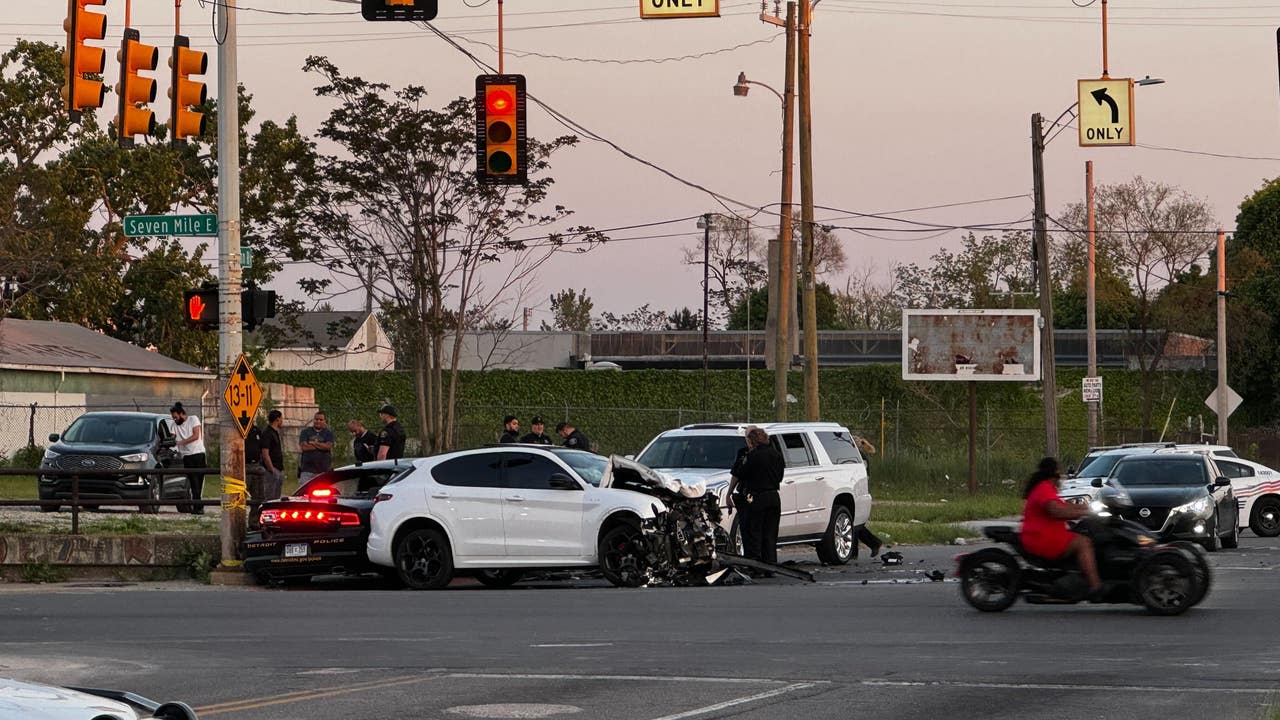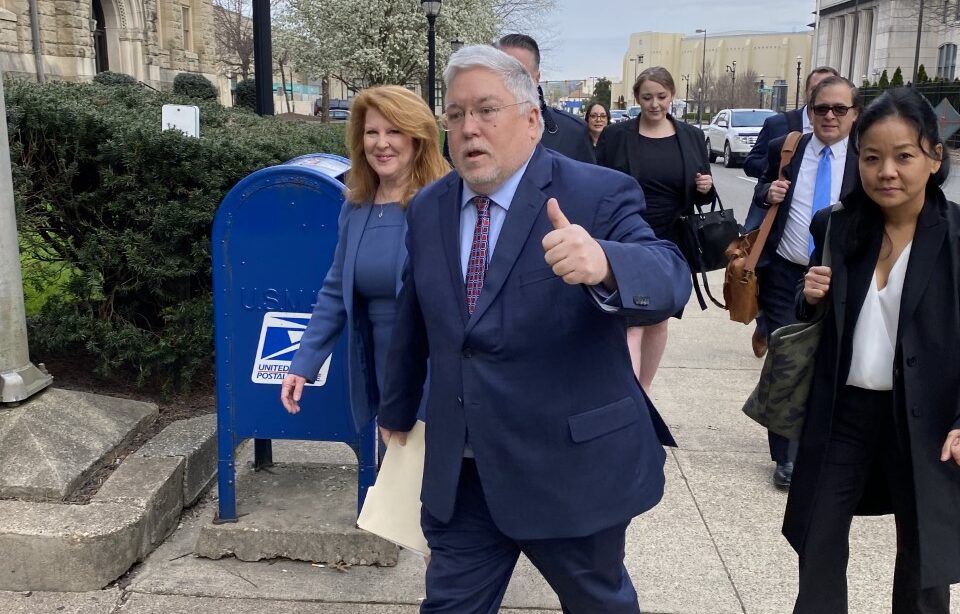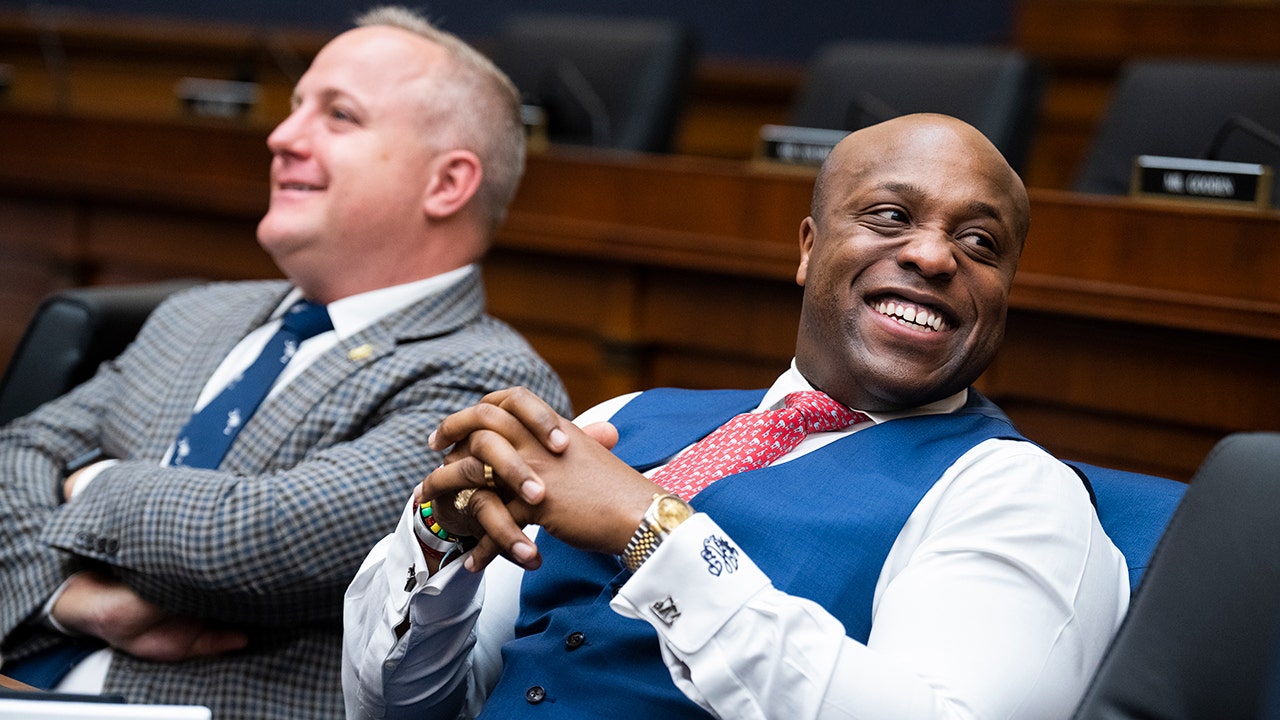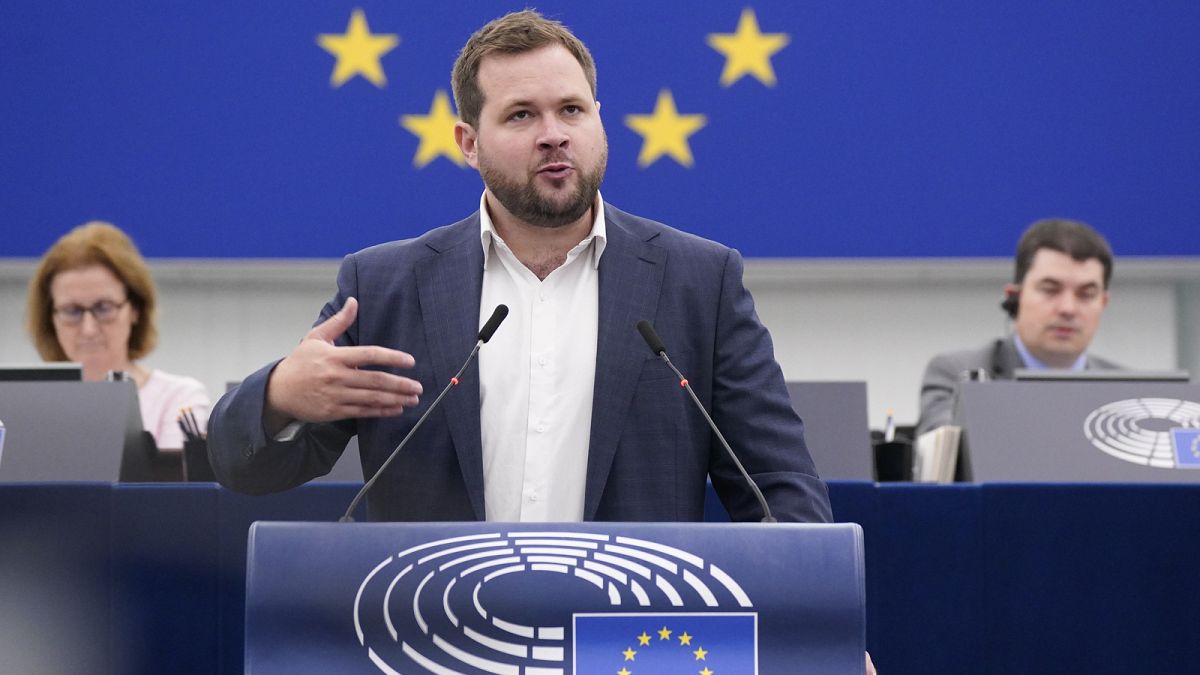Business
Clarence Avant, Mighty Engine Behind Black Superstars, Dies at 92

Clarence Avant, a record executive who shaped the careers not only of Bill Withers, Whitney Houston, Janet Jackson and other Black singers, but also of politicians, actors and sports figures — exerting so much influence that a 2019 documentary about him was called simply “The Black Godfather” — died on Sunday at his home in Los Angeles. He was 92.
His family announced his death in a statement.
Mr. Avant (pronounced AY-vant), born in a segregated hospital in North Carolina and educated only through the ninth grade, moved easily in the high-powered world of entertainment, helping to establish the idea that Black culture and consumers were forces to be reckoned with.
He started out managing a nightclub in Newark in the late 1950s and moved on to representing some of the artists he met there. Joe Glaser, a high-powered agent who handled Louis Armstrong, Duke Ellington and many other top acts, took Mr. Avant under his wing; perhaps, the documentary suggested, Mr. Glaser, who was white, thought it would be advantageous to have a Black man representing some of his Black clients.
In any case, Mr. Avant was soon handling artists including the jazz organist Jimmy Smith and traveling in rarefied circles. Not all his clients were Black; he said Mr. Glaser sent him to Los Angeles in 1964 with the Argentine pianist Lalo Schifrin, who was then working with Dizzy Gillespie, to try to get Mr. Schifrin started on a career composing for film and television. Though he knew nothing about the movie business, Mr. Avant worked his brand of magic on the West Coast: Mr. Schifrin has to date been nominated for six Oscars.
In 1960 Mr. Avant formed Sussex Records — he said the name was his combination of the two things people want more than anything else, success and sex — which lasted only about half a decade but released, among other records, Mr. Withers’s early albums.
“Clarence made some great choices musically,” Mr. Withers, who died in 2020, said in the documentary. “‘Lean on Me’” — Mr. Withers’s only Billboard No. 1 hit — “was not my choice for a single.”
Later in the 1970s Mr. Avant founded Tabu Records, and for a time in the 1990s he was chairman of Motown. He also helped Jim Brown, the football player, build an acting career and negotiated an endorsement deal for Hank Aaron, the Hall of Fame baseball player, as well as supporting the political careers of Jimmy Carter, Bill Clinton and Barack Obama.
“One of the things he understands is, there are different kinds of power,” Mr. Obama said in the documentary. “There’s the power that needs the spotlight, but there’s also the power that comes from being behind the scenes.”
In 2013, accepting the entrepreneur award at the BET Honors, one of many he received in his career, Mr. Avant summed himself up.
“I can’t make speeches,” he told the crowd while clutching his trophy. “That’s not my life. I make deals.”
Clarence Alexander Avant was born on Feb. 25, 1931, in Greensboro, N.C., to Gertrude Avant Woods, a domestic worker. In the documentary, he said his mother was not married to his father, Phoenix Jarrell, whom he barely knew.
He grew up in Climax, N.C., in difficult circumstances and stayed in school only through ninth grade.
“We were poor,” he said in the film. “I’m talking about poor, poor, poor. We had chicken-feet soup.”
Racism was omnipresent, and the Ku Klux Klan loomed large.
“My mother would just tell us, if you hear a car coming, run and hide; lay down flat,” he said.
He grew up with a stepfather, Eddie Woods, who was abusive, and he said he left home when he was a teenager after his attempt to kill the man by putting rat poison in his food failed. He went to live with an aunt in Summit, N.J.
For a time he held a low-level job at Martindale-Hubbell, publisher of a law directory. In his 20s he started working at a Newark nightclub that featured Black musicians. That was his introduction to the entertainment business, and he proved a natural.
“I think Clarence exemplifies a certain cool,” Mr. Obama said in the documentary, “a certain level of street smarts and savvy that allowed him to move into worlds that nobody had prepared him for and say, ‘I can figure this out.’”
As his career representing entertainers began to flourish, Mr. Avant met Jacqueline Gray, a model. They married in 1967, and as the couple prospered Ms. Avant became noted for her philanthropic work.
In December 2021 a man burglarizing the Avants’ home, Aariel Maynor, shot and killed her. He pleaded guilty to multiple charges the next year and was sentenced to life in prison.
In the documentary, friends remarked on their long marriage, somewhat unusual in the entertainment world.
“They still look like they’ve got wedding cake on their feet,” the actor Jamie Foxx said, “like they just walked off a soul wedding cake.”
Mr. Avant’s daughter, Nicole Avant, said in a phone interview that after the tragedy, her father made a conscious effort to press on.
“Music was, I think, the lifesaving force for him,” she said, especially that of Ellington, Frank Sinatra and other artists from his youth. “His mood changed when the music came on.”
At about the time he was getting ready to marry Jacqueline, Mr. Avant was growing more vocal about racial matters. A 1967 article in The Pittsburgh Courier quoted a strongly worded letter he had written to the management of WLIB, a radio station in New York that was aimed at a Black audience but at the time was white-owned.
“Is your station managed by Negroes,” he wrote, “and I am not referring to Negro disc jockeys?”
“I think radio stations whose programs are supposed to appeal to the so-called Negro market,” he added, “should at least be staffed by Negro personnel.”
He was also becoming active politically. He supported the early campaigns of Andrew Young, who made an unsuccessful run for a Georgia congressional seat in 1970 and a successful one two years later. It was Mr. Young who connected Mr. Avant to Hank Aaron when he was about to break Babe Ruth’s career home run record in 1974.
“Clarence called me up and said, ‘Andy, do you know Hank Aaron?’” Mr. Young recalled in the documentary, which was directed by Reginald Hudlin. “I said, ‘Yeah, he lives around the corner.’ He said, ‘If he’s about to break Babe Ruth’s record, he’s supposed to make some money.’”
Mr. Avant wanted to help Mr. Aaron secure some endorsement deals.
“Will you tell him that I’m not crazy and I’m going to call him?” Mr. Avant asked Mr. Young.
“I said, ‘Well, I can’t vouch for you not being crazy,’” Mr. Young said, “‘but I’ll tell him that you’ve been very helpful to me.’”
It was fraught territory — Mr. Aaron was receiving death threats over the prospect that he would break a hallowed record set by a white player. Mr. Avant, though, according to the documentary, marched into the office of the president of Coca-Cola and told him, in unprintably blunt language, that Black people drink Coke.
Mr. Avant’s guidance helped Mr. Aaron secure a substantial deal from Coke and otherwise market himself, which fueled his later charitable endeavors.
“Henry Aaron would not be Henry Aaron if it were not for Clarence Avant,” Mr. Aaron, who died in 2021, said in the film.
Mr. Avant also helped other athletes, including Jim Brown as he transitioned from football into acting in the 1960s. Interviewed for the documentary, Mr. Brown, one of the biggest Black stars of the 1960s and ’70s, had a hard time pinning down what Mr. Avant did — not an uncommon thing among those who knew and worked with Mr. Avant.
“You have this guy called Clarence Avant that everybody’s talking about, but nobody seems to understand just what his official title was,” Mr. Brown, who died in May, said, recalling their early meetings. “I couldn’t tell you now exactly what he — was he an agent, a manager, a lawyer? — what he was.”
Mr. Avant had rocky times in the mid-1970s, when the Sussex label went bankrupt and KAGB-FM, a radio station he had bought (making it one of the first Black-owned stations in the Los Angeles area), floundered. But, he said, friends were always his most important asset, and some of them helped him get back on his feet.
Tabu Records, which Mr. Avant founded in 1975, released records by the S.O.S. Band, Cherrelle and others.
In addition to his daughter, who was a producer of “The Black Godfather,” Mr. Avant is survived by a son, Alexander, and a sister, Anne Woods.
The Avant home was always abuzz with A-list visitors. Nicole Avant recalled a day, when she was 12, that she and a friend got into trouble at school. The friend’s mother, driving Nicole home, was fuming — until she saw Harry Belafonte walking out of the Avants’ house.
“Is that Harry Belafonte?” the woman asked her.
”I said, ‘Yeah, how do you know Harry Belafonte?” — not realizing he was anyone other than a friend who would come around to visit her parents from time to time.
Ms. Avant, who served as ambassador to the Bahamas during the Obama administration, said that Mr. Belafonte and others who would gather at the Avant home were serious about breaking down racial barriers, in the entertainment world and in society in general.
“They knew that they were on a mission,” she said.
The flood of tributes offered to Mr. Avant on Monday included many from younger performers who appreciated his legacy.
“He is the ultimate example of what change looks like, what architecting change looks like, and what the success of change looks like,” the rapper and producer Pharrell said in a statement. “He stared adversity in the face in climates and conditions that weren’t welcoming to people that looked like him. But through his talent and relentless spirit in the pursuit to be the best of the best, he garnered the support and friendship of people who otherwise wouldn’t look in our direction.”

Business
Tesla to cut 601 jobs in Bay Area, a sign of more problems for EV maker
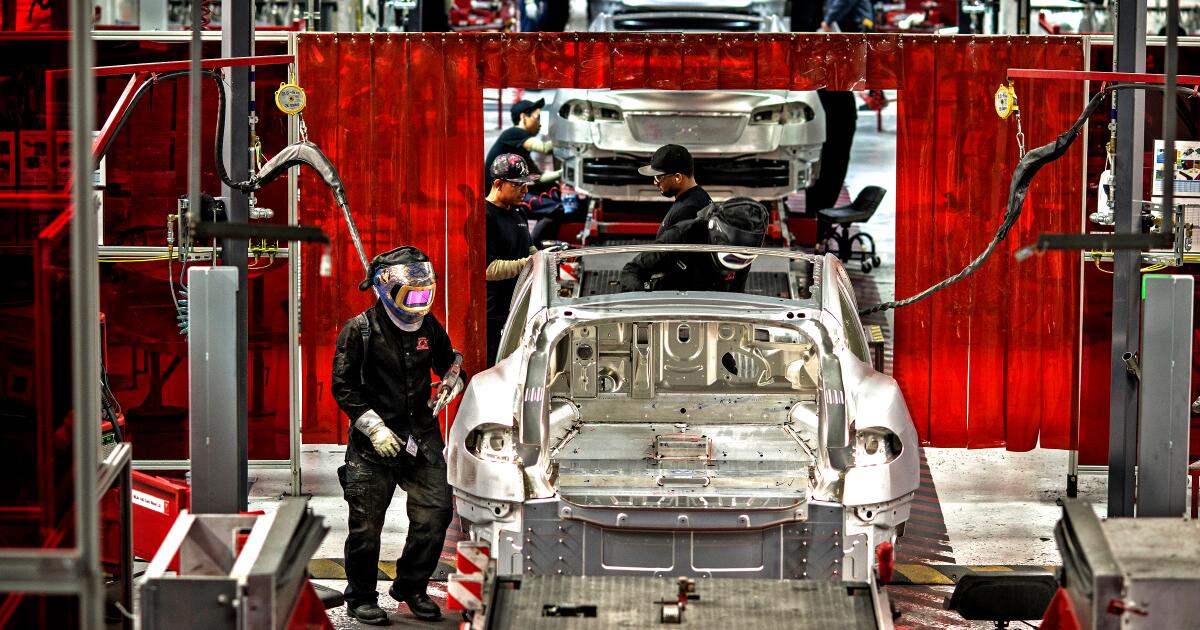
In the fourth straight week of layoff announcements, Tesla said it is now concentrating on reducing staff at its Bay Area facilities as part of a larger move to cut jobs globally.
State filings show that Tesla is planning to lay off 378 employees at its Fremont facilities and 233 at its Palo Alto offices.
The layoffs will occur over a 14-day period starting June 20.
An email to Tesla officials requesting comment was not immediately returned.
The layoffs come as the company struggles with flagging sales, top executives fleeing, a declining stock price and quality problems with the new Cybertruck. The low-cost Model 2 recently promised by Chief Executive Elon Musk also appears to be dead.
It is not immediately clear which positions are being cut. The San Francisco Chronicle reported they would include technicians, electricians, software engineers, plumbers and athletic trainers.
On April 15, Musk announced in an email to staff that Tesla was cutting more than 10% of its workforce, citing job overlap and the need to reduce costs.
A week later, Telsa said it was laying off 3,332 workers at its facilities and offices in Fremont, Palo Alto, Burbank and Lathrop.
Including the latest cuts, Telsa has announced 3,933 layoffs this year in California.
“As we prepare the company for our next phase of growth, it is extremely important to look at every aspect of the company for cost reductions and increasing productivity,” Musk wrote in the April email.
“As part of this effort, we have done a thorough review of the organization and made the difficult decision to reduce our headcount by more than 10% globally,” he continued. “There is nothing I hate more, but it must be done.”
Business
ChatGPT's new voice mode is giving 'Her' vibes

The days of an interactive, almost-human virtual assistant could be coming sooner than you think.
Tech company OpenAI has unveiled the latest update to ChatGPT, which now includes a voice mode that allows users to communicate more conversationally with the AI system. In a video posted Monday on X by OpenAI Chief Executive Sam Altman, company officials ask ChatGPT to tell them a bedtime story involving robots and romance.
“Ooh, a bedtime story about robots and love?” ChatGPT responds in a cheerful female voice. “I’ve got you covered!”
The system proceeds to tell a story about a curious robot “in a world not too different from ours,” and then pivots to different voices when company officials periodically interrupt to ask it to speak more dramatically, in a robot-like voice or in a sing-song way.
The new update, known as GPT-4o, quickly received comparisons to the 2013 Spike Jonze movie “Her,” starring Joaquin Phoenix, in which a lonely man falls in love with his virtual assistant Samantha, voiced by Scarlett Johansson. Even Altman appeared to refer back to the film, saying in a blog post that it “feels like AI from the movies; and it’s still a bit surprising to me that it’s real.”
(But that movie isn’t entirely rosy about AI taking on the role of a human companion, cautioned Wired Executive Editor Brian Barrett in a column titled “I Am Once Again Asking Our Tech Overlords to Watch the Whole Movie.” In the column, Barrett notes that at least one OpenAI employee heeded that advice. He quoted a tweet in which the employee said that re-watching “Her” “felt a lot like rewatching Contagion in Feb 2020.” )
“Getting to human-level response times and expressiveness turns out to be a big change,” Altman wrote.
Previous versions of ChatGPT were text-based, with users typing questions to the system and receiving written responses instantly. Past attempts to make the system give more human-like responses, beyond simple fact regurgitation or rudimentary stories, were largely rebuffed by ChatGPT.
Though bedtime tales about robots and love seem benign, AI and its potential effect on jobs is a pressure point in Hollywood and played a major role in last summer’s dual strikes led by the Writers Guild of America and the Screen Actors Guild-American Federation of Television and Radio Artists.
OpenAI, in particular, has not been shy about courting the entertainment industry and has met with studio and talent agency executives to discuss another of its products, Sora, an AI tool that uses text-based prompts and turns them into visuals that can be cinematic in quality.
Recently, indie pop artist Washed Out used Sora, which is not yet publicly available, to create a four-minute music video for the song “The Hardest Part.” The music video zooms through scenes from a couple’s life that are completely AI-generated.
Beyond Hollywood, other industries are also flirting with AI, such as fast food operators. Those businesses are now looking to AI to run drive-through orders or walk-up self-service kiosks to reduce the financial effect of California’s new $20 minimum wage for restaurant workers in certain establishments.
Business
Pro-Palestinian activists protest at Google developer conference amid Israel-Hamas war
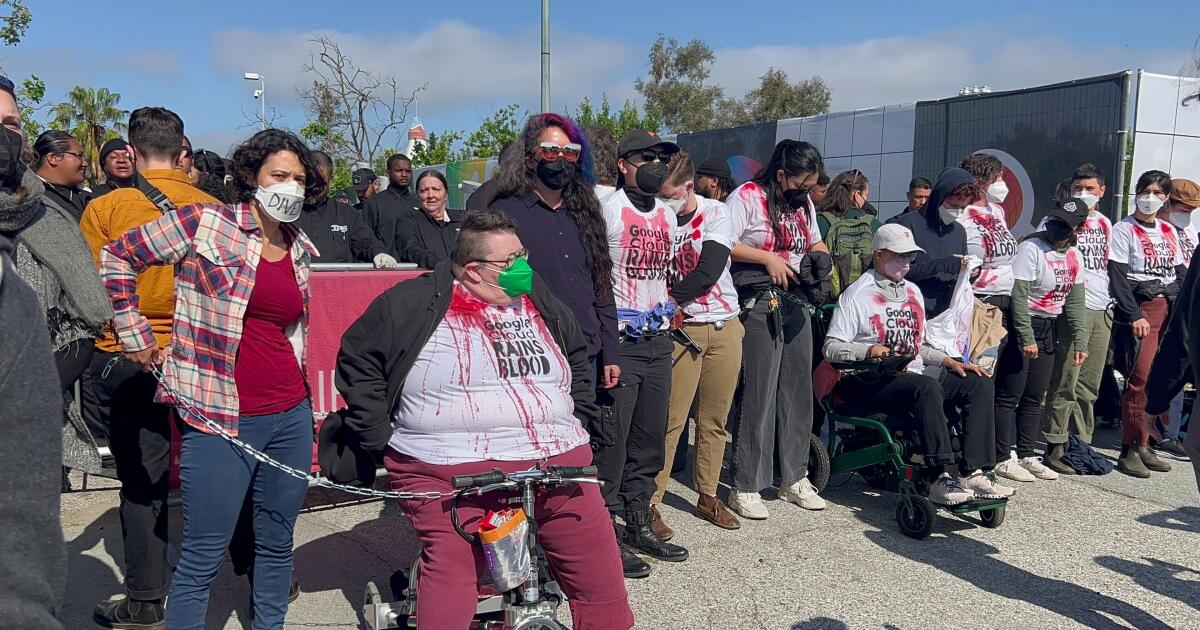
Dozens of protesters blocked the entrance of Google’s developer conference in Mountain View, Calif., for roughly 90 minutes on Tuesday, demanding that the tech giant drop its work with the Israeli government amid the country’s war with Hamas in the Gaza Strip.
The protest group, which accuses Israel of committing genocide against Palestinians in Gaza, held two events on Tuesday that it said involved hundreds of participants.
A group chanted “Shame on Google” and “Google Cloud rains blood” in the front of the entrance to the conference at Shoreline Amphitheatre, where the tech giant was expected to announce updates to business including its Android and Gemini AI systems. Separately, the protesters held a rally at a nearby park.
The protesters, who call themselves No Tech for Genocide, have been demanding that Google end its cloud computing contract with the Israeli government, known as Project Nimbus.
The latest Israel-Hamas war began when Hamas militants attacked southern Israel on Oct. 7, killing about 1,200 people and taking an additional 250 hostage, according to the Israeli government. Palestinian militants still hold about 100 captives, and Israel’s military has killed more than 35,000 people in Gaza, according to Gaza’s Health Ministry, which doesn’t distinguish between civilians and combatants.
Protesters at the Google event said they believe the company’s technology is being used by the Israeli military for surveillance of people in Gaza through facial recognition, leading to the arrest and detention of Palestinians.
Google did not immediately respond to a request for comment.
The company has said that its technology is used to support numerous governments around the world, including Israel’s, and that the Nimbus contract is for work running on its commercial cloud network, with the Israeli government ministries agreeing to comply with Google’s terms of service and acceptable use policy.
“This work is not directed at highly sensitive, classified, or military workloads relevant to weapons or intelligence services,” Google said in an April statement.
One of the protesters at the Tuesday conference was Ariel Koren, a former Google employee who alleges the company retaliated against her in 2021 after she raised concerns about the contract. Google said at the time that it had investigated the case and found no evidence of retaliation.
“We want to make sure that every single person who comes here and who might think that today’s a day about celebrating technological advancements — every single one of those people needs to understand that the reality is much darker than what Google has painted,” Koren said.
Organizers estimated that 50 people participated in the demonstration in front of the conference. The rally at the park drew a bigger crowd.
One of the participants objected to Google holding its conference the day before Palestinians commemorate 76 years since their mass expulsion from what is now Israel. Palestinians refer to their displacement during the 1948 Israeli-Arab war as the Nakba, which is Arabic for catastrophe.
The protest in front of the Google I/O conference began at around 9:30 a.m., with protesters moving toward a bag checkpoint. Conference attendees had been asked to take out their laptops and have their bags searched.
The event’s security closed the entrance as protesters moved to stand in front, leaving a large line of attendees who were later directed to another area to proceed to the conference. A line of protesters held a red sign that proclaimed “Google Stop Fueling Genocide.” The demonstration ended at about 11 a.m.
Google’s developer conference draws thousands of people each year, many of whom are developers eager to learn about the company’s latest technology.
After witnessing the protest, several attendees said they planned to do more research on Project Nimbus.
“I feel that it is worth a shot to listen to others when they have a point of view,” said Andres Haro, a 30-year-old software security engineer from Utah, as he waited in a long redirected line into Google I/O’s entrance.
The protest comes after more than 50 Google employees were fired following sit-ins and protests that took place at Google office locations last month protesting Project Nimbus. Google said it terminated those workers after an investigation determined they were involved in disruptive activity that violated its policies governing employee conduct.
A spokesperson for the group behind the sit-ins, called No Tech for Apartheid, said they were not involved with Tuesday’s protest.
“We’re asking more questions about what role we and our employers are playing in the world,” said Roni Zeiger, a product developer who participated in the rally on Tuesday at Charleston Park, near the Google event. “World events have continued to evolve and … people, including employees, are asking harder questions and wanting to work at places that are consistent with their values.”
-

 Politics1 week ago
Politics1 week agoHouse Dems seeking re-election seemingly reverse course, call on Biden to 'bring order to the southern border'
-

 World1 week ago
World1 week agoStand-in Jose Raul Mulino wins Panama presidential race
-

 News1 week ago
News1 week agoCompass Direct LLC’s 2024 Registration in North Carolina
-
News1 week ago
UCLA to resume in-person classes after Gaza protest crackdown
-

 World1 week ago
World1 week agoTech compliance reports, Newsletter
-

 News1 week ago
News1 week agoColumbia University cancels its main commencement ceremony after weeks of turmoil
-

 News1 week ago
News1 week agoMan, 75, confesses to killing wife in hospital because he couldn’t afford her care, court documents say
-

 World1 week ago
World1 week agoPentagon chief confirms US pause on weapons shipment to Israel

